Faith is too often seen as a barrier to LGBT+ inclusion, so we’re launching new resources to change this
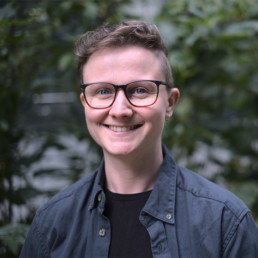
Written by Amy Ashenden
Director of Comms and Media/Interim CEO, Just Like Us, the LGBT+ young people’s charity.
As the new Interim Chief Executive of Just Like Us, my aim this year is to ensure more schools than ever have the tools they need to support their LGBT+ young people.
For several years now, School Diversity Week has been celebrated by so many incredible educators across the UK, showing young people that being LGBT+ is nothing to be ashamed of. Last summer, more than 5,000 primary and secondary schools took part. This year, 26-30 June, I believe it’s vital that schools with intersecting communities have the resources they need to celebrate School Diversity Week.
From faith schools to Welsh-speaking communities and primary schools, Just Like Us will be providing new sets of resources that cater specifically to the educators that need tailored LGBT+ inclusion tools the most. When half of young people (48%) tell us that their school hasn’t given them positive messaging about being LGBT+, it’s clear to me that we have a long way to go and that to change this, schools need the right kind of resources that speak to their individual ethos and community.
Our new independent research has found a third of teachers (30%) say faith has been a barrier to discussing LGBT+ topics in school. More than 7,000 UK teachers took part in our survey this February, revealing an indisputable need for resources that are both LGBT+ and faith inclusive.
That’s why we’ve launched a new series of faith and LGBT+ inclusive resources for Anglican, CofE, Catholic, Jewish and Muslim school communities. From primary assemblies to worksheets and videos featuring LGBT+ young people talking about their faiths, the resources are designed to give educators the tailored tools they need to celebrate School Diversity Week in a way that makes sense for their community. We have also worked in collaboration with LGBT+ faith-led organisations Keshet, Hidayah, One Body One Faith and Quest to develop these resources in a way that really speaks to the communities they’re designed to support.
In faith schools, the research found that 46% of teachers had previously found faith to be a barrier to talking about LGBT+ topics in the classroom, compared to 25% at non-faith schools. I believe it’s vital that we now provide the tools educators at faith schools need to support their young people who may be LGBT+ or have LGBT+ families.
Interestingly, just 3% of headteachers said that faith has always been a barrier to discussing LGBT+ topics.
A lack of LGBT+ inclusion in schools is so rarely about a lack of willingness but instead due to a historic lack of suitable resources that empower educators to get started on their journey. It’s also important that we remember that LGBT+ and faith communities are never totally separate – as you’ll see in the resources, faith is very important to many LGBT+ young people and to suggest that there’s no overlap just isn’t reality. You can absolutely be LGBT+ or an ally and belong to a faith – being Jewish and a lesbian, I know this reality well.
It’s also really important that we don’t erase the fantastic LGBT+ inclusion work that many faith schools are already doing with their pupils. St Stephen’s CofE Primary School in London is just one example of this. Nicola Collins, who works at the primary school, is a huge advocate for celebrating School Diversity Week and won our LGBT+ Inclusive Teacher of the Year award in 2022. She explained: “As a school, we feel passionate about challenging stereotypes and homophobic language. As a result, the children in our school are well informed and accepting of all people no matter who they are!”
We hope that these new resources will be a gamechanger for schools with faith communities to celebrate School Diversity Week this 26-30 June. We really welcome educators to get in touch with your feedback or any questions you might have about making LGBT+ topics faith inclusive.
Acceptance: Still so much work to be done.
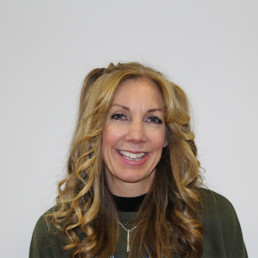
Written by Kelly Richens
Programme Director, BASCITT. BASCITT is proud to celebrate diversity and promote equality and inclusivity (see here)
Applying to train to teach is a daunting enough task; the whole construction of your personal statement and how it defines you, all of your work experience, your qualifications and who will be your referees. All wrapped up in the deep emotions of taking this huge step towards becoming a life-changer for young people.
If this wasn’t searching enough in terms of self-exploration and presenting yourself, there is a section that says ‘Criminal Record and Professional Misconduct’ in which an applicant can make any relevant declaration.
I had an email confirming an application in which there had been such a declaration. Imagine my horror when I opened the webpage to view the application and read: ‘I am unsure whether this is a safeguarding issue, however I feel it necessary to raise and protect myself and others from misunderstanding. I am transgender.’
A flood of emotions ensued: rage that this applicant had felt being transgender could be a safeguarding issue; sadness that whilst she wanted to share this information, she had chosen to include in in a section labelled ‘criminal record’; fear that there are groups of people without the psychological safety to just be who they are without recourse of judgement; and the smallest amount of pride that she had actually been brave to share at all.
So rather than my first conversation with this applicant about her potential qualities as a teacher, I had to have a difficult conversation of reassuring and coaching her that she was in safe hands with us. What a shame that we could not talk instantly about her joy of her subject, or why she was applying to us. Her being transgender was a huge distraction from this and that is wrong.
Whilst I reflect on this, and have since interviewed and offered a training place to this lovely individual, based on her merit, I am still left without an answer of how do we stop this happening again? Keep promoting inclusivity? Keep the courageous conversations going? Keep educating and keep that positive momentum going on how we can continue to aim for a world in which an individual does not fear themselves being viewed through a judgmental lens? Instead a place where everyone can be celebrated for who they are and what they have to offer our pupils.
The Fight Against RSE

Written by Ian Timbrell
Ian is an education consultant and trainer, supporting schools develop their provision for LGBT+ pupils and their RSE curriculum. He has worked in education for 15 years; including as a class teacher and a deputy head teacher.
The cursory glance at social media and the internet suggests that UK RSE curricula include suggestions of bondage, is opposed by most people, is queering education and is a risk to safeguarding. But what is the truth behind this opposition?
The backlash
Broadly, objections can be categorised into three areas: secrecy around RSE; developmentally inappropriate materials; the inability to withdraw from lessons; and the ‘queering’ of education.
The secrecy around RSE
A common oppositional narrative is that schools refuse to show what materials they are using. This view essentially accuses all teachers of not safeguarding their children. We’re not asked to show all materials so why is RSE different? If schools were to publish every piece of planning and resource used, the workload would push an already overworked system to the brink of collapse. This is not to say that there is no transparency. Generally, schools will share this information upon request, or through parent consultations.
RSE is developmentally inappropriate
Opponents of RSE claim it contains messages of anal sex, bondage, pornography and self-stimulation at age 4-6. My son is 9 and I would be horrified if he learnt any of these at his age. But he’s not. Because none of it is in the RSE frameworks.
Proponents of this message often use excerpts of preparatory paperwork as evidence for inappropriate content. But these aren’t in the mandatory documents. As part of any curriculum design process, you look at a wide range of documents to find out everything that is out there. That doesn’t mean that Governments use them, or that you agree with them.
I am not saying that no school has ever used inappropriate materials, but critics fail to acknowledge that these mistakes are in the smallest percentage of schools and instead of banning RSE for all, the individual school should take the appropriate action to ensure appropriate nature of the materials they are using in lessons.
The inability to withdraw from lessons
In Wales, parents are not allowed to withdraw pupils from RSE lessons. Being told that we cannot withdraw our children from any areas of their life is bound to put some people’s heckles up. However, the reality is that this is the case for pretty much every other area of the curriculum. Schools would not allow withdrawal from English or Maths, so why should it be allowed from a framework that aims to develop healthy, happy people?
One of the reasons that withdrawing from all RSE lessons is not as simple as some would like you to think, is that effective RSE is primarily not delivered as ‘RSE lessons’. RSE encourages friendships and respect and so it is impossible to withdraw from any lesson that develops these attributes. What the parents here are generally saying is that they want them withdrawn from sex education and/or mentions of sexuality or gender. Withdrawing from RSE frameworks as a whole is impossible, but withdrawing from sections would be a logistical nightmare for schools and is not realistic.
The ‘Queering’ of Education
This phrase is fascinating, especially because it has no agreed universal meaning. Most opponents seem to be using it as a phrase to suggest that ‘Queer Theory’ is now underpinning education. They are conflating the true meaning of Queer Theory with conspiracy theories to suggest that there is collusion in education and health to somehow convert children to become LGBT+. This is rooted in LGBTphobia and is not founded on anything but discrimination and panic culture.
The real reasons for the backlash
The most obvious and largest group appear to be transphobic and homophobic. The reality is that up to 10% of the population are LGBTQ+ and if we do not ever discuss these things, this whole section of society will grow up wondering why they feel different. But also by deliberately not mentioning LGBTQ+ people, we are saying that they don’t exist, which is phobic in and of itself. Inclusion of LGBTQ+ people on displays, in books and in lessons is not going to turn anyone LGBTQ+, but it will make our world a more inclusive and tolerant place.
An argument opponents to RSE also use is that they don’t want sex talked about to three-year-olds. But sex doesn’t need to be mentioned. At that age, it’s about realising that there are different families and challenging gender stereotypes.
The final reason that I will talk about here is religion. A minority use religion as a reason for their children not to be ‘exposed’ to LGBT+ or gender discussions. I follow a number of LGBTQ religious individuals and organisations, and I can tell you that religion does not spread hate, people do.
Conclusion
In 2021, 5 parents took the Welsh Government to court to ban RSE. Unsurprisingly, they lost the court case as many of the disproved views from above were put forward as ‘evidence’.
The fact is, no matter what change happens in schools, there are always opponents and critics. But when you couple inevitable bemoaners with homophobia and transphobia, there was bound to be pushback. But RSE is key to making the UK an inclusive country and the vast majority of us know that it is the right thing to do and trust the teachers to do the best by their children.
Embracing Equity

Written by Ben Hobbis
Teacher, Middle Leader and DSL. Founder of EdConnect and StepUpEd Networks.
Equity (noun) – the quality of being fair and impartial.
This year’s theme for International Women’s Day is embracing equity. I have to admit over five years ago, if you asked me what this word meant, I could not have told you. I was uneducated and naïve in this area. I had to educate myself.
Five years ago, I would have said I was a champion for equality. I had done this in my previous roles in retail, particularly when it came to recruiting. In my last store, I had a very diverse team across the nine protected characteristics across the Equality Act. And this recruitment was not tokenistic, we had a fantastic team who were brilliant at what they did, and their diversity all brought something to the table. What I did not realise at that time was that I actually was a champion for equity, without knowing it. I was also an ally, but I did not recognise this either.
I believe I am a real champion for equity. This comes down to my allyship. As a white, able bodied, straight male, I have a duty to champion, advocate and push for equity. I see this in my day job as a teacher. As the champion for those 30 children who I serve, I must be the one to challenge decision making that directly impacts my children, decisions that affect them both negatively and positively. As a leader in a school, I must champion equity of opportunity. For example, as Personal Development Leader, one of the first things I enacted was to remove the Head Boy and Head Girl positions, they were limiting because of sex. We now have a mixture of students involved with our student leadership and pupil voice systems. And I am pleased to say in a boy heavy school, we have a large group of girls leading from the front and I am so proud to watch and champion them. As the leader of a grassroots network, I am constantly challenging colleagues in terms of the diversity of event line ups and who our intended audience is.
I recognise, I have not had it as hard as my female counterparts (but also my counterparts who are BAME, LGBTQ+ and so on). Therefore, I must embrace equity in my life and my work. We should all be striving to create an equitable society and not allow equity to be ignored. Embrace equity!
The Time is Now
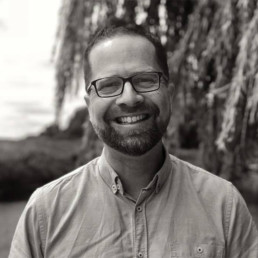
Written by Matthew Savage
Former international school Principal, proud father of two transgender adult children, Associate Consultant with LSC Education, and founder of #themonalisaeffect.
I write this as a father, and as an educator. I am angry, and I am scared.
Occasionally, partly as an experiment, I will share simultaneously on Facebook a) an innocuous post with a smiling photo of me; and b) a ‘call to action’ in support of my two trans children in an alarmingly transphobic world. The former consistently attracts lots of engagement, and the latter virtually none. My inference, corroborated by conversations I have had, is that a majority of people do not want even to enter what they see as a polarised and toxic debate.
This seems to me to be a victory for transphobia, and the ‘gender-critical’ right wing: that it is now widely accepted that we need to debate this at all, when any debate over the human rights of any other protected characteristic would be widely deemed abhorrent. Therefore, whilst some would argue that now is the time for calm debate, and for pause and reflection, this post is none of these. For I would argue that there is also a time for advocacy and allyship, and for activism and action. And the time is now.
I was young enough to experience the acidic effect of Section 28 as a teenager. Growing up in the 1980s, I was oblivious of the identities and expressions of the LGBTQ+ community: in part, this was due to a cowardly and shameful lack of representation in the media, sport and public life, and, in part, to the ignorance and fear of the blinkered society which tried to bring me up; but it was also due to the inability and incapacity of educators even to talk about those lives, even as so many of those same lives were being decimated by a new, deadly virus.
This violent clause was repealed in Scotland in 2000 (it seems the nation I now call home was ever ahead of its southern neighbours), as one of the earliest pieces of legislation enacted by the nascent Scottish parliament and, eventually, by Westminster in 2003. Peace had defeated violence, and love had vanquished hate. However, violence and hate, it seems, had not been beaten, but had merely lurked, waiting for their renaissance; and a new Section 28 lies on the horizon.
At the time of writing this, just over 205,000 people have signed a parliamentary petition calling for the government to “Remove LGBT content from the Relationships Education curriculum”, and this is now awaiting a date for parliamentary debate. Meanwhile, just over only 92,000 people have signed a counter-petition calling for that same government not to do so, and the government is only obliged to ‘respond’.
That is 120% more hatred than love, and 120% more violence than peace.
There is no debate, when it comes to deciding who has human rights and who does not. There is no calm when some of the most oppressed, attacked and marginalised children, young people and adults in our society are under attack. There is no reflection, when the facts and the statistics instantly destroy the hatred, on the too few occasions they are shared. And there is no pause, when children’s and young people’s very lives are in danger.
I write this as a father, and as an educator. I am angry, and I am scared.
Please give your voice to peace and love, both through this petition, and through literally any other means possible.
The time is now.
“New year, new me!”
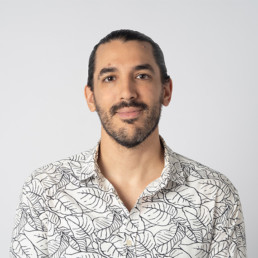
Written by Andrew McGeehan
Andrew (he/him) is a trainer/consultant based in Singapore that loves talking about anything DEIJ related and/or cats!
A phrase that all of us hear a lot every year right around this time. I know I have said it (and non-ironically!). This year, I’m asking myself (and all of you reading this) – what will actually be new? What am I planning to do differently this year? How am I planning to spend my time, energy, resources, and money? How will I commit to uplifting others, pushing for justice & equity in the world, and naming hurtful behaviour in my community?
And in the end, will the new me take the time to reflect, look inward, and identify the ways in which I also contribute to marginalisation and oppression?
Every time a new year comes, regardless of the calendar that we use to mark it, it is a time for renewal. There is that surge of energy that comes with seeing the whole next year laid out before us and the possibilities fly through our minds. We imagine who we might become, who we might meet, what new opportunities we will have, and a whole new life can flash before our eyes. But before we know it, we are back to work, back in our lives, back to the same old routines we always had, and within a month, we are left wistfully wondering where that excitement for the new year went.
I will challenge you today to not let that happen!
I challenge you to make empathetic, inclusive, and justice-oriented commitments to yourself and others and to follow through on them.
I challenge you to question yourself constantly.
I challenge you to have conversations you’ve never had before that are difficult and nuanced.
I challenge myself too.
I am a queer white cisgender able-bodied man doing diversity, inclusion, and equity work in Asia. There is a lot for me to continuously unpack about my cultural background, my perceptions of reality, my understandings of privilege and power. I am constantly learning and interrogating what it means to be a white person and a cisgender man and talking about these issues. I’m clarifying for myself where and what my role should be.
If you are interested in solidarity work, allyship, advancing racial & gender & orientation & disability & religious (& more!) equity, and seeing the world take more rapid steps towards equity and justice, I’ll invite you to make these commitments along with me.
1.Do the internal work – When we want to work towards justice and equity, our interest and passion for the topics aren’t enough. There is a lot that we need to accept about ourselves, socialisations to try and unlearn, and reflection to be had. I often work with folks who prefer to skip this step – in trainings, someone might say “Can you just tell me what we should be doing to make our organisation more inclusive?” And yes, I could do that. But without any understanding of our own internal worlds, we won’t be effective advocates for justice.
What do I mean by this? Spend time uncovering your own biases, accept that we are all brought up to believe negative stereotypes about people who are different than us, analyse your social circles, identify who you gravitate towards to at work and who you avoid and why. We don’t need to be perfect people in order to engage in justice & equity work, but we do need to be aware of what we are walking into the space with.
2. PLEASE move beyond awareness – Awareness is over. There is so much information out there via mass media, pop culture, research, memoirs, peoples’ lived experiences, surveys, etc etc etc! Awareness isn’t a bad thing; but for many people and organisations, it’s the only thing. Awareness without action doesn’t change anything. Having a work event to celebrate International Women’s Day and share information on the wage gap is fine – but it ultimately rings hollow if there isn’t follow up within the organisation to actually reduce/eliminate it within the organisation.
3. Name harm with your friends, family, & colleagues – It’s time to start doing the hard work and talking about these issues with the people closest to us (or at least those we spend a lot of time with). Especially for those of us with a lot of privilege, it’s necessary to name the racism, heterosexism, ableism, sexism and other harms that we see within our families and friends. Naming it and discussing it doesn’t have to be a big conflict, nor does it mean that the person called out is a bad person. We all do things that are hurtful at times, and if we aren’t held accountable for it, we won’t be able to understand and change our behaviour.
It might be easy to start with something simple, like saying “I don’t think comments like that about gay men are appropriate” or “I don’t think jokes about immigrants are funny.” If feeling generous, we may take more time to explain how the actions might harm us or make us feel or provide more resources for them to do their own learning.
4. Commit to making lasting change – Systemic -isms persist because the systems haven’t changed yet. There is tons of value in changing our internal worlds and educating our friends and family. It’s also extremely powerful to work to change systems. In many cases, our capacity to change a system will be in the workplace. We can advocate for policy changes, required trainings, targets for inclusive leadership. These changes can be difficult to make and sometimes run the risk of seeming “boring”, but they create change that lasts beyond our tenure in any organisation. For instance, an organisation celebrating Trans Day of Remembrance and encouraging staff to share their pronouns is great, but does that same organisation have trans-inclusive and affirming healthcare?
If you are part of an Employee Resource Group/Network Group, this is a great space to start considering what institutional changes need to happen in order to create an environment of affirmation and comfort for all. An easy way to start is by reviewing company policies – is the language gender-inclusive? What is the parental leave policy? Are there flexible arrangements? How are neurodiverse staff supported? Does insurance cover mental health?
5. Read & learn about it from those who know (and believe in their knowledge of their own experiences) – There are many amazing activist writers, artists, musicians, and filmmakers out there. Learn about them, learn from them, and buy their products! If you are a majority race person and you don’t know about racism in your country/region, there is surely a book about it written by someone who experiences that racism daily- read it with an open mind. If you want to understand better the experience of a person who lives with a disability, find research that talks about the workplace challenges folks face.
And when you read, listen, and watch about these experiences, believe them. Folks with marginalised identities know what they have experienced. Sometimes we want to dismiss what we hear because it makes us uncomfortable or because we know that we have participated in similar hurtful behaviours. Lean into that discomfort and try to identify where it is coming from without being defensive. I know this is hard and I still struggle with this sometimes, but it is so necessary. Just pause and ask yourself “what about this is making me feel this way?”
Some Singapore-based starting points:
- “What We Inherit: Growing Up Indian” – True stories of Indian women’s experiences in Singapore
- “Queer Singapore: Illiberal Citizenship & Mediate Cultures” – Highlights the complexity of queer existence in Singapore
- https://transformativejusticecollective.org/ — Learn more about the work being done to shift justice away from the death penalty and towards transformation
6. Expand your social circles – So much of my own social justice learning has been through relationships I’ve built with people. I was very lucky to go to graduate school with an extremely diverse cohort and build wonderful relationships across race, gender, religion, and more. Our familiarity with issues brings us greater empathy, and many people care more about issues that affect someone they know. Inclusive access in a city may have never mattered to someone, until their partner becomes wheelchair bound and then they will notice all the ways in which cities are not built for folks with physical disabilities or mobility challenges.
As a word of caution, I do not advocate expanding your social circle in a way that is tokenistic (i.e., I should find a gay friend! I don’t have one of those!). But think about ways that you can expand who you interact with, through social media, connections from other friends, or volunteering. Take a look at who you already know- what is the makeup of the people you spend time with? During my trainings, I always ask people to consider who they go to lunch with at work and who they see other people go to lunch with. My personal experience in Singapore is that many foreigners take lunch together and many locals take lunch together. Could there be unconscious bias at play? Could people be more comfortable sticking only with what is familiar? I don’t have an answer, but it is worth investigating what this looks like for us individually and see what patterns we observe.
7. Try, fail, apologise, and try again – Whenever we engage in work related to justice and equity, we will invariably make mistakes. When someone tells you that you have hurt them, or done something that is racist/sexist/homophobic/etc, apologise for causing harm. If possible, have a conversation to make sure that you understand what it is that was hurtful (but don’t force the other person to share this with you). Think about how you can do better next time and maybe reflect on the experience with a trusted friend.
Maybe you want to become more comfortable naming microaggressions at work – you won’t do it right all the time. But you will be able to refine your technique and enhance your comfort level as you practice. As with any skill, we need to practice it to get better at it. Working towards justice and equity are no different. Do your best and approach this work with a lack of ego and the knowledge that you will make mistakes and that is ok.
8. Understand what you have to gain – Greater justice, equity, and inclusion in the world benefits everyone. People with privilege often feel like they are “losing” something, but that is not the case. There is enough equality to go around. Understand that advocating for gender equity creates new opportunities for people of all genders, including men. We are not diminished when others have the same opportunities that we do; but we are diminished when others are held down by systemic oppression.
Along with this, we have to know and understand our own “why.” Why are you doing this work? Why do you care? I often see organisations and individuals who are doing D&I work because it is seen as trendy or required in the contemporary era. This is a surface level connection to the work that won’t go beyond some token improvements or remain mired in awareness-building. Think for yourself about what your personal commitment is and act from there.
I am pledging myself to the above as well. I am continuously interrogating my place as a White American man in Asia talking about diversity, inclusion, equity and justice. I reflect on how privileged I am to be able to be hired by companies to do this work. I mess up in my trainings and apologise to participants when I’ve cause harm. I work to continue finding research and pedagogies that do not have a US-centric lens and are context-specific to Asia & Singapore. I can and will continue to refine and nuance my approach towards this necessary work.
It’s a journey that we are all on. I hope that you will come along with me in 2023 and consider which of the above items might be part of the “new you.”
The issue with “high expectations”

Written by IncludEd Diagnostics
IncludED Diagnostics support local authorities, academy trusts, and individual schools with their work to increase inclusion, reduce suspensions and reduce exclusions. More information is available at www.includeddiagnostics.co.uk
If you are sanctioned for failing to meet an “expectation”, it is, in fact, a “condition”.
For a long time I have been interested in why deprivation and poverty are associated not just with academic outcomes, but with behavioural outcomes, and on my journey to understand this I came across a researcher called Sendhil Mullainathan and his work on the concept of scarcity. In his view, scarcity is a much more wide-ranging concept than poverty (an arbitrary threshold of income), i.e. we can have a scarcity of time, health, family support, relationships, cultural input, etc. – all of which can impact our outcomes. In describing the impact of scarcity he uses the analogy of packing into a smaller suitcase, and inspired by the #IncludEd2023 conference today, I’d like to start with this.
Two pupils are going away for a week, one packing into a large suitcase and one into a smaller suitcase. The suitcases can be seen as strict metaphors for disposable income (family income in this example), or in a broader way as availability of lots of different resources… but they both articulate a difference in experience.
The pupil with a smaller suitcase (i.e. scarcer resources) has a smaller capacity for items, therefore…
- They are forced to operate with more conditions
Their items have to be folded smaller and packed away better than the pupil with a large suitcase. They have to make more “either/or” decisions on what to pack, whereas the pupil with the larger suitcase can pack more with less efficiency.
Could you list all the conditions / expectations children must meet to engage fully in your school? When we put pressure on parents/carers to immediately provide a new pair of school shoes, do we consider the scarcity that so many are living with? Less time because of childcare or multiple jobs, the cost and time of travel to get the shoes, the cost of the shoes, and what is the “or”? What isn’t being bought, what isn’t time being invested into?
- Decisions have to be better!
Not only does the pupil packing into the smaller suitcase have to make better, not equal but better, decisions because there are more conditions, but any errors they make will cost more. If both forget their phone chargers, one may buy a new charger with relative ease, one may not. If packing is done badly and an item gets damaged, the same applies.
Living in scarcity means a “lack of slack” for mistakes – we all make mistakes but they don’t cost us or impact us all equally. There is very little flexibility for this within most school behaviour systems as the consequences appear superficially the same – the same detention time is given. The actual impact – socially, emotionally, educationally – may vary widely.
- Triggering reminders of scarcity means we have less “bandwidth” for the process [not our inherent intelligence / cognitive capacity but how much of it is temporarily available]
There is research to support this – using food-related words in word-searches prompted dieters to be significantly slower in finding the following words – and the implications are profound. The implications are that the concentration, focus, and attention needed to actually pack the suitcase is more limited for those affected by scarcity when that has been consciously triggered (i.e. I wish I had a bigger suitcase like other people!) Wouldn’t that make this pupil more likely to make mistakes? Ones which cost more?
——————————————————
What prompted me to write about this today was hearing from two speakers who have experienced the care system. Consider the conditions we place on children in school, then consider the size of the suitcase a child in care is packing, i.e. the multiple levels of scarcity they may be experiencing. We have conditions on appearance and equipment – coat, black socks, bag, colour of pen, PE kit, pencil-case, etc. We have conditions on behaviour – a consistent requirement to accept adult authority and direction, regulate level of activity, attention, and emotional response. Even peers come with conditions for integration – they could be clothing, games consoles, cultural references, a similar capacity to spend time together outside of school. Some of these may feel impossible for a young person to achieve… Lemn Sissay OBE described it so viscerally today when he recalled “the smell of people with families”.
The speaker before Lemn was Jade Barnett, which is a name you will come across again in the future. Her educational journey travelled via two managed moves, a pupil referral unit, a move into care then a move into a care home at the opposite end of the country. Jade is a model of the most positive outcomes – today she held five hundred minds in her hand purely because she speaks with such intelligence, articulacy and power. But, as a child, she was forced into a situation where she was packing into a small suitcase. And the schooling system places yet more conditions on her, and others like her. Nowhere in her speech did she imply that those conditions were helpful; where many, such as Lemn, feel like they don’t belong already, the consequences of failure to meet these “expectations”/conditions must only reinforce that perception. At their least useful, they make engagement and access to education harder for some of the most vulnerable.
————————————————–
To return to more typical language of schooling, high expectations can no longer be a cover for just describing a very large number of conditions. And we need to stop painting such conditions as supportive to young people by their mere presence. That is to confuse equality of expectations/conditions with equity, but that isn’t equity at all. In reality, we may be both ignoring the smaller suitcase and expecting more of the child who is packing it.
High expectations of academic progress are crucial to all children fulfilling their potential, and these are genuinely “expectations” because they come without sanction. Without them children may not be taught to their full potential. Alongside that, adult understanding of the difficulties that some children face is a critical factor in making sure children belong and can thrive. For school and education leaders, it is worth considering what is within your control and sphere of influence to mitigate the impact of scarcity. Is the pupil premium grant being used to best effect? Also, please do consider when thinking about the rewards and sanctions in your school how do you make things fair for those living with scarcity?
Two Years On: Where are we now?

Written by Hana Malik
Hana Malik is currently an Associate Senior Leader, Head of English with a passion for social justice, diversity and equity.
We decided, after the murder of George Floyd in the US, that we wanted our educational organisation to join the movement against racism and we turned our school towards the necessary work it took to be anti-racist. Now, two years on, I find myself asking where we are and what we’ve achieved, if we’ve made any positive changes to the lives of our staff and students and if our DEI work has moved us forward.
We have heard it before, and it is key to achieving success: DEI work is circular – it is evolving and the work is never ‘done’. It is vital therefore to reflect on progress and ensure the evolutions keep happening.
Ella Washington, an organisational psychologist and founder and CEO of Elevate Solutions (a DEI strategy firm), helps to clarify the ‘five stages of DEI maturity’ and how we might evaluate the work we are doing. The five stages are: aware, compliant, tactical, integrated and sustainable. She explains this in her upcoming book as well as for the Harvard Business Review: https://hbr.org/2022/11/the-five-stages-of-dei-maturity She has also spoken about the three Ps of DEI evaluation.
Purpose
The most important place to begin is with the why, especially because there is (not yet anyway) no standard of DEI in an educational setting against which you can measure your organisation. No teacher standards (although meeting the needs of learners is often cited as DEI adjacent) and certainly no Ofsted criteria under Quality of Education or Personal Development. I consider our school and think about where we were in 2020. Why did we join the movement? Did everyone know where we were going and why we were going there? Did everyone feel safe in joining the journey?
There were great successes in this area, especially in 2020 and 2021. Now however I must admit that our commitment to DEI has become something of an ‘extra’ improvement priority. Not because we don’t believe in DEI, but because, like all schools, the reality of exams, Ofsted, sky-high bills, mean that we are juggling countless balls and it has been hard to hold on firmly to the DEI one. Most important perhaps is the question of whether our why has changed and if as leaders we can be courageous enough to acknowledge that and realign the vision.
Pitfalls
This can be difficult, but honest reflections and consideration of barriers and pitfalls will contribute to successful and sustained DEI work. Were leaders vulnerable and open about why we’d started this journey thereafter building confidence and trust in the staff body? Did staff have a secure and shared language about DEI? Were changes manageable and sustained?
We’ve fallen into some predictable pitfalls. The one that is arguably most challenging is that we have stopped communicating our vision and goals for DEI. Is it still on our school improvement plan? Yes. Do we all know why it’s there and what change might entail? No. Secondly, the work of DEI cannot fall to one person. A DEI champion is great, but what happens when they leave? We know how important middle leaders are in delivering change, and it is in that room we can ensure that DEI is sustained.
Progress
The all-important ‘this is progress’ stage. The curriculum, the outcomes, the senior leadership team. We want to see progress across all elements of our organisation. So, what does progress look like? What does it look like in the short term and the long term? How can we find out where we are now and where we need to go next?
We do have a more diverse and representative SLT. We do have a more inclusive recruitment process from blind CVs to diverse panels. Our students do learn about a wide range of topics; from kabaddi in PE to reframing migration. There are boxes we can tick now, that is true. But we know our work is far from ‘done’. We will need to return to the question of what progress looks like for us and go from there. If schools are microcosms of the society we live in, we need to think carefully about what DEI in a socially just and equitable world looks like. We can then build the change we want to see.
Diverse Educators: A Manifesto - Book Review

Written by Madeleine Spink
Madeleine completed a PGCE in Citizenship at the IOE after studying at the University of York and Goldsmiths. Madeleine now teaches Sociology, PSHCE, Oracy and History at Langley Park School for Girls in Bromley.
Diverse Educators: A Manifesto is edited by Hannah Wilson and Bennie Kara, with contributions from over 100 educators, structured around the Equality Act 2010.
It starts with a quote from Maya Angelou that “diversity makes for a rich tapestry, and we must understand that all the threads of the tapestry are equal in value no matter what their color.” The books format is best described as a tapestry. It is made up of ten chapters, one for each of the nine Protected Characteristics (Age; Disability; Gender Reassignment; Pregnancy and Maternity; Marriage and Civil Partnership; Race; Religion and Belief; Sex; Sexual Orientation) with a tenth chapter exploring intersectionality.
The book is collaboratively produced and mixes personal and professional experiences. Educators generously sharing their experiences and learning include primary and secondary teachers from all age groups, backgrounds and life experiences. The book develops the readers empathy to the diversity of educators, as well as the diversity of opinion of people within each protected characteristic. For example, the chapter on disability includes personal experience, the need for disability in RSE, practical tips to involve students in curriculum planning and data on the permanent exclusion rates for disabled students. It feature’s ACT’s own Lee Jerome on Intersectional Citizenship as a status, a feeling and a process. The chapter on Transgender inclusion is also insightful and talks about Lucy Meadows, whose death should not be forgotten by teachers who have followed her into the profession.
Deep questions are asked throughout, and the contributions informed my thinking about whose responsibility inclusion is, whose work it often ends up being and whether inclusion work is for the long term or ‘en vogue’. I would have loved to have seen a chapter talking about working class teachers existing in the middle class school environment, and how this identity intersects with the protected characteristics.
The variety of editing and writing styles did make the manifesto lack cohesion and feel inaccessible at times. The structure takes time to get used to, and can be navigated either by starting with the editors overview and selecting the sections that appeal to a particular interest, or by focussing on the key takeaways and ‘contributions’ to the manifesto at the end of each chapter. This changes depending on how the chapter has been edited, and some chapters are referenced while others lack referencing. It is a tapestry of a book, to capture such a variety of perspectives is a huge achievement, but not everything will appeal to everyone.
Diverse Educators is a book to dip in to, reference and use as a guide to practical steps that can be taken to inclusion. It would be a good choice for a staff book group and comes with a reading guide and questions. There’s a lot of ways this resource can be used and shape teaching, learning and the school environment.
Why Don’t We Talk About Intersectionality in Schools?
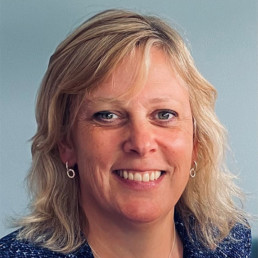
Written by Dr Jo Trevenna
Dr Jo Trevenna has over 20 years' experience of educational leadership from early years to post-graduate level. Her ongoing academic interests centre on Leadership and EEDI. Her company, Potential Education, offers leadership reviews, support and training and EEDI-focused school support.
There can’t be many of us still thinking that human identity is singular. Right? Aren’t we a combination of diverse characteristics that create and impact on our existence? Expectations and assumptions around combinations of characteristics are increasingly illuminated in societies, with light thrown on those who experience multiple discrimination and shade thrown on those who discriminate against those with different combinations of characteristics. The complexity around identity is foregrounded in explorations of intersectional discrimination. Yet intersectional disadvantage is not generally a focus for English schools.
Why?
Is it a lack of understanding and awareness or the lack of external accountability?
The Law
Critical awareness of the vulnerabilities faced by those with exact combinations of identity characteristics was first associated with the legal work of Kimberlé Crenshaw which looked into the discrimination experienced by African-American women in terms of ‘intersecting patterns of racism and sexism’ (Crenshaw 1991, p1243). Crenshaw asserted that anti-discrimination legislation in the United States did not actually protect African-American women because, when making legal claims against an employer, this particular group had to choose between a focus on either their race or gender, even though the discrimination they faced came at the ‘intersection’ of these two identity characteristics.
Section 14 of The Equality Act (2010) recognises the potential for discrimination pertaining to ‘combined discrimination: dual characteristics’ (Legislation.gov.uk 2010). The focus here is limited to direct discrimination against the combination of only two characteristics. More significantly, Section 14 has never, in fact, come into force. It just sits there in provisional status.
As it stands, therefore, the law does not adequately protect against intersectional discrimination and, in terms of English schools, there is no legal imperative to tackle intersectional discrimination.
Publicly Available Data
Published performance table data is hugely significant for schools. The first stage of the high profile ‘school and college performance measures’ website offers only a single-axis approach to pupil data. Some basic intersectional data is available on the ‘Explore Education Statistics’ section of the platform relating to ethnicity and disadvantage, disadvantage and gender, SEN and ethnicity. However, the data remains on cohort numbers and does not provide any information which may indicate the impact of those intersections on pupil academic performance, exclusions/suspensions and attendance. FOI requests can be made and the GOV.UK website also offers the facility for researchers through its new Grading and Admissions Data for England (GRADE) service. This service may be a significant step forward in terms of higher level transparency but it does not provide readily accessible data to the public on intersectional discrimination affecting pupils.
Data revealing the intersectional factors affecting pupils is available to school leaders and governors, local authorities and Ofsted via the ‘Analyse School Performance’ (ASP) secure access platform. Filtering mechanisms enable reports combining specific pupil characteristics, eg: boys with SEN, and scatterplot graphs make it relatively easy to identify patterns of underperformance because of key combinations of protected characteristics thereby highlighting potential impact of discrimination and flagging up need to address. Another school performance document is the Inspection Data Summary Report (IDSR), which is accessed on the secure ASP portal. The IDSR is a key document for Ofsted Inspectors when preparing to inspect a school and informs initial discussions with headteachers. Like the ASP tool, the IDSR does provide schools and Ofsted with a retrospective mini intersectional tool in its coding on scatterplots of the progress and attainment of pupils by binary gender classification and SEN status and deprivation status. However, there is no public access to this data.
To sum up: disadvantages experienced by pupils with specific combinations of identity characteristics in English schools are not readily flagged in publicly published school data. Perhaps Ofsted, which does have access to this anonymised intersectional data via the ASP and IDSR, has the potential to be the driving force in helping schools engage with intersectional discrimination.
Taking a sample of 68 Ofsted Section 5 inspection reports published in a six month period (not including those which inspected an already ‘Good’ school), there are only references to single-axis identity characteristics. In this sample, Ofsted, as the key inspection mechanism for schools, does not engage with the impact of intersectional discrimination on pupils. The lack of referencing in this sample of reports is not surprising given that Ofsted’s School Inspection Handbook only relates identity characteristics on a single-axis framework.
As it stands, then, there is no legal accountability, no easily accessible public data to enable transparent exploration of the impact on pupils and little Ofsted engagement with intersectional discrimination and disadvantage. Right now, without the external accountability structures, it is the choice of school leaders whether or not to adopt an intersectional approach to their schools. Given that most of us agree that identity has multiple components, it is surely time to explore how an intersectional approach can throw light on intersectional disadvantage and discrimination and therefore help schools to tackle it head on despite the lack of an external accountability framework.

